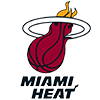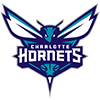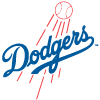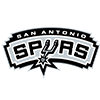A few weeks ago, I showed that opponent rebound percentage has a big impact on the performance of the players who grab a lot of boards. It was one of the most conclusive findings I've been able to make since the launch of this column. Yet, it left me unsatisfied. Surely there must be more to life, I mean rebounding, than opponent rebound percentage? The connection was established, but there must be other factors that can help us predict successful rebounding, right?
Specifically, I wondered about missed shots. The Knicks miss seven more shots per game than the Jazz. The Rockets miss twice as many threes as the Spurs. Logically, extra misses should mean more rebounds, but I'd rather know something than assume it. If we focus only on rebound percentage, are we missing something important?
What are we looking at?
For this analysis, it only makes sense to look at top rebounders. When making a fantasy decision about Nick Young or Danny Green, managers look at the opponent's history against three-point shooters, not rebounds. By focusing our analysis, the results are more likely to be helpful.
We are focusing on the 44 players who average at least seven rebounds per game. The list is mostly power forwards and centers, and includes a representative from every team except the Celtics. And, important, the list is loaded with players like Al-Faouq Aminu, Bismack Biyombo and Taj Gibson – players who are on the fantasy radar, but not obvious every-night starters.
A few weeks ago, I showed that opponent rebound percentage has a big impact on the performance of the players who grab a lot of boards. It was one of the most conclusive findings I've been able to make since the launch of this column. Yet, it left me unsatisfied. Surely there must be more to life, I mean rebounding, than opponent rebound percentage? The connection was established, but there must be other factors that can help us predict successful rebounding, right?
Specifically, I wondered about missed shots. The Knicks miss seven more shots per game than the Jazz. The Rockets miss twice as many threes as the Spurs. Logically, extra misses should mean more rebounds, but I'd rather know something than assume it. If we focus only on rebound percentage, are we missing something important?
What are we looking at?
For this analysis, it only makes sense to look at top rebounders. When making a fantasy decision about Nick Young or Danny Green, managers look at the opponent's history against three-point shooters, not rebounds. By focusing our analysis, the results are more likely to be helpful.
We are focusing on the 44 players who average at least seven rebounds per game. The list is mostly power forwards and centers, and includes a representative from every team except the Celtics. And, important, the list is loaded with players like Al-Faouq Aminu, Bismack Biyombo and Taj Gibson – players who are on the fantasy radar, but not obvious every-night starters. These are the players about whom we want to make better decisions.
Looking at these players, we will compare how they perform against teams who miss tons of shots, and teams who miss comparatively few shots. We try to check whether missed shots matters more, less, or roughly the same as rebounding percentage.
Recap what we already know?
Three weeks ago we found that opponent rebound percentage had a pretty direct correlation to rebounding totals. Just as we are doing this week, we focused on the top rebounders. We discovered that when an elite rebounder played the best teams, they averaged one fewer rebound per game than normal. When those same players faced the worst teams, they averaged one extra rebound per game.
Looking at missed shots
The rebounding percentage article paid no attention to how many rebounds were available each game. But not every game has the same quantity of balls bouncing off the glass. More missed shots should mean more rebounding opportunities.
The data seems, initially, to bear this out. The Knicks, Pelicans and Bulls miss the most shots in the league. The Jazz, Spurs and Warriors miss the fewest. Our top rebounders fared better against the first group than the second. The top-20 rebounders gained just less than one rebound per game against the teams that missed the most shots and lost about half a rebound against the teams that missed the fewest shots.
Expanding this analysis to look among the top-40 rebounders, those changes get smaller – players gained about 0.5 rebounds against the teams that missed the most shots and lost about 0.1 rebounds against teams that missed the fewest shots.
That means missed shots is less helpful than rebound percentage. Those differences are smaller than the ones found when looking at rebound percentage. In particular, these players grabbed fewer rebounds against teams with good rebound percentages than they did against teams who missed few shots. The benefit of playing a team that misses a lot of shots was similar to, though slightly less than, the benefit against a low rebound percentage team. I think this highly mathematical chart will make this more clear:
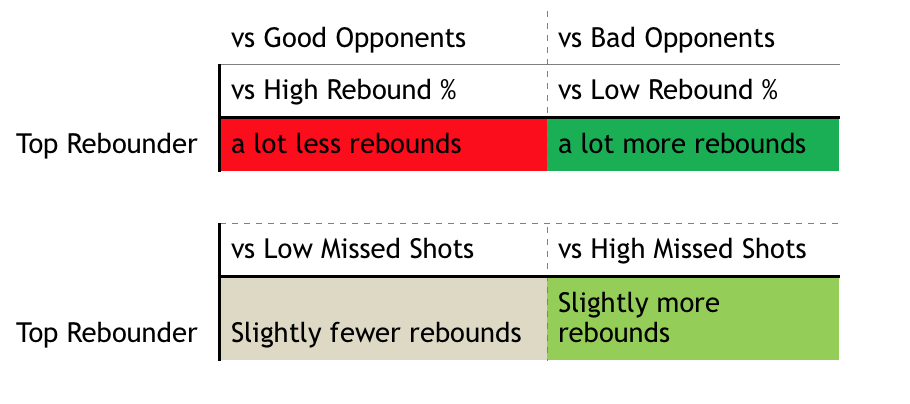
A discouraging case study
Take the Grizzlies and the Bucks. Of the teams in the middle third for rebounding percentage, the Grizzlies miss the most shots per game, while the Bucks miss the least. The Grizzlies miss the fourth-most shots in the league, the Bucks miss the fourth fewest. Since both teams rebound close to half of the available rebounds, the impact of rebound percentage should be minimized. If we are ever going to use missed shots to make lineup decisions, it will be when a player is facing one of these two teams.
The results were helpful, and time-saving. Although the Grizzlies missed 4.5 more shots per game, the players averaged fewer rebounds against them than against the Bucks. Although both teams grab close to 50 percent of available rebounds, the Grizzlies are above that mark while the Bucks are below it. It seems as though the Grizzlies small advantage in rebound percentage overpowered the fact that they missed many more shots.
This leads to an important takeaway: on their own, extra missed shots are not enough to warrant making a roster decision.
How to use missed shots
Missed shots are not irrelevant, we showed that by pointing out the sizeable difference between rebound totals against the Knicks, Pelicans and Bulls over the Jazz, Spurs and Warriors. But, as we saw with the Grizzlies and the Bucks, using missed shots alone would lead fantasy managers to make the wrong decision.
So how do we use missed shots?
The answer is we combine it with rebound percentage. The Pelicans and the Mavericks are the worst rebounding teams in the league. But while the Pelicans are tied for the lead in missed shots per game, the Mavericks are in the better half of the league. The Pelicans, therefore, make for a better target than the Mavericks.
On the other end of the spectrum, if you want to use a player, but the opponent's high rebound percentage is discouraging, check how many shots the team misses. The Bulls miss the third-most shots in the league and have the second-highest rebound percentage. Starting a rebounder against the Bulls is not nearly as risky as starting one against the Nuggets or Thunder (first and third in rebound percentage, respectively; 15th and 17th in missed shots).
These findings will be most helpful for daily gamers, but it has implications for seasonal owners making end-of-lineup decisions or looking at short-term waiver options, too – especially players in leagues that permit streaming.
Teams who miss the most shots:
1. Knicks – high rebound percentage
2. Pelicans – very low rebound percentage
3. Bulls – very high rebound percentage
4. Grizzlies – average rebound percentage
5. Magic – low rebound percentage
Teams who miss the fewest shots:
26. Clippers – average rebound percentage
27. Bucks – average rebound percentage
28. Warriors – high rebound percentage
29. Spurs – high rebound percentage
30. Jazz – high rebound percentage








